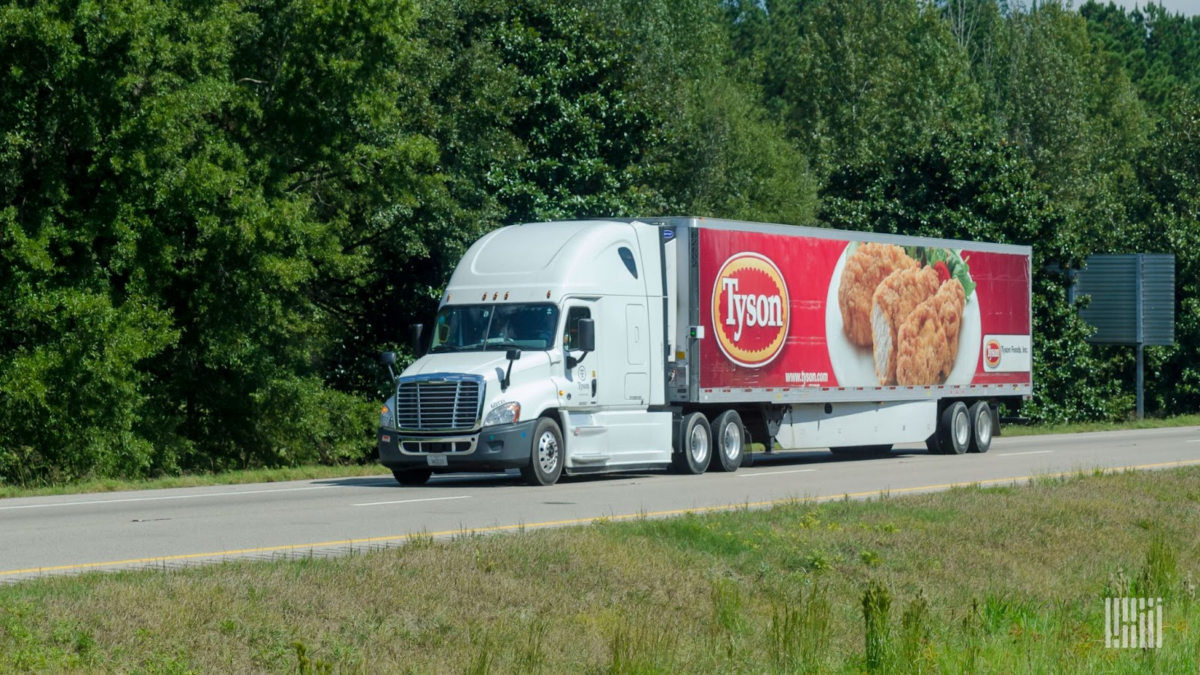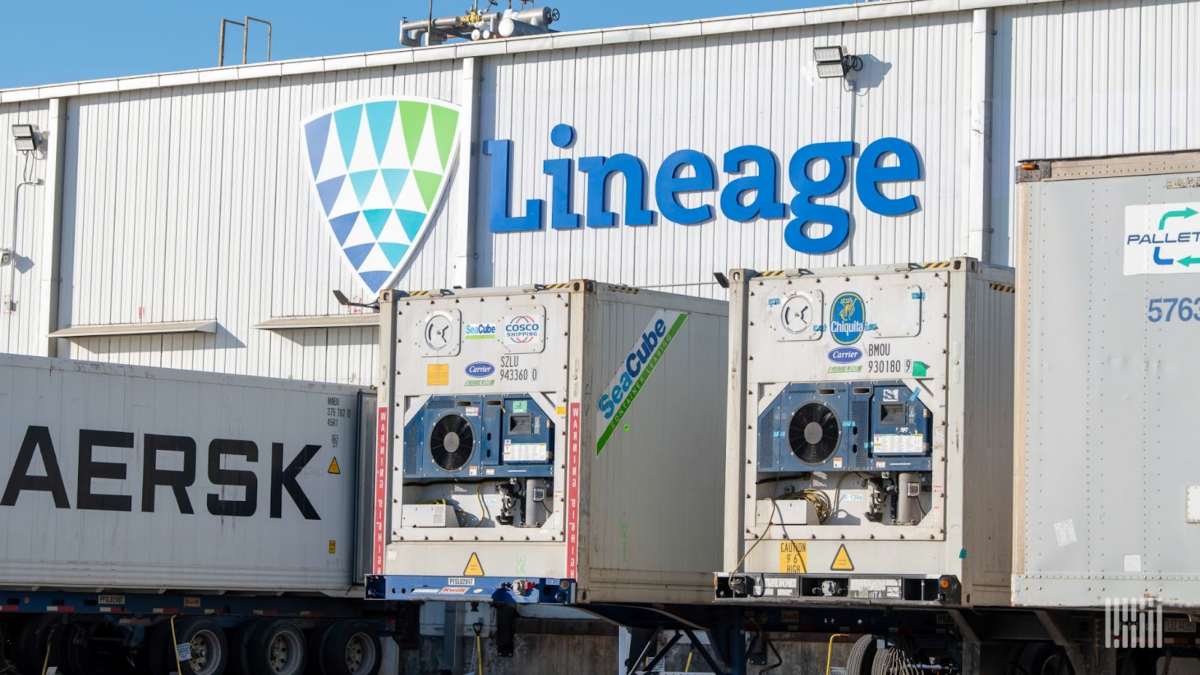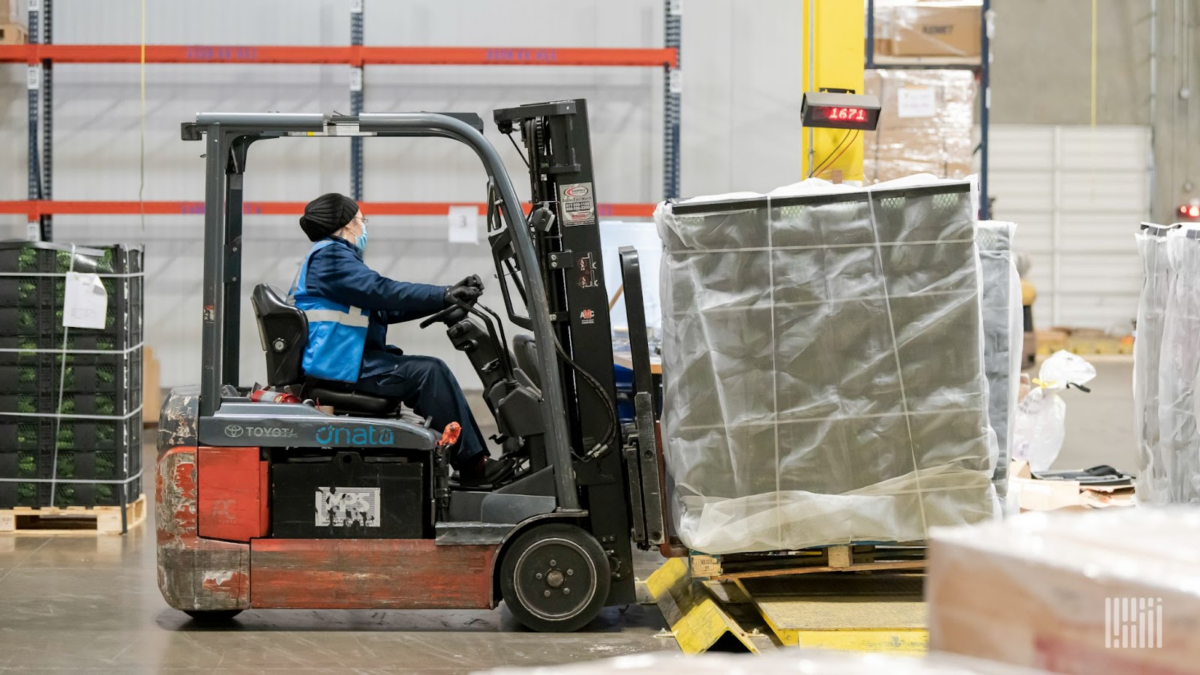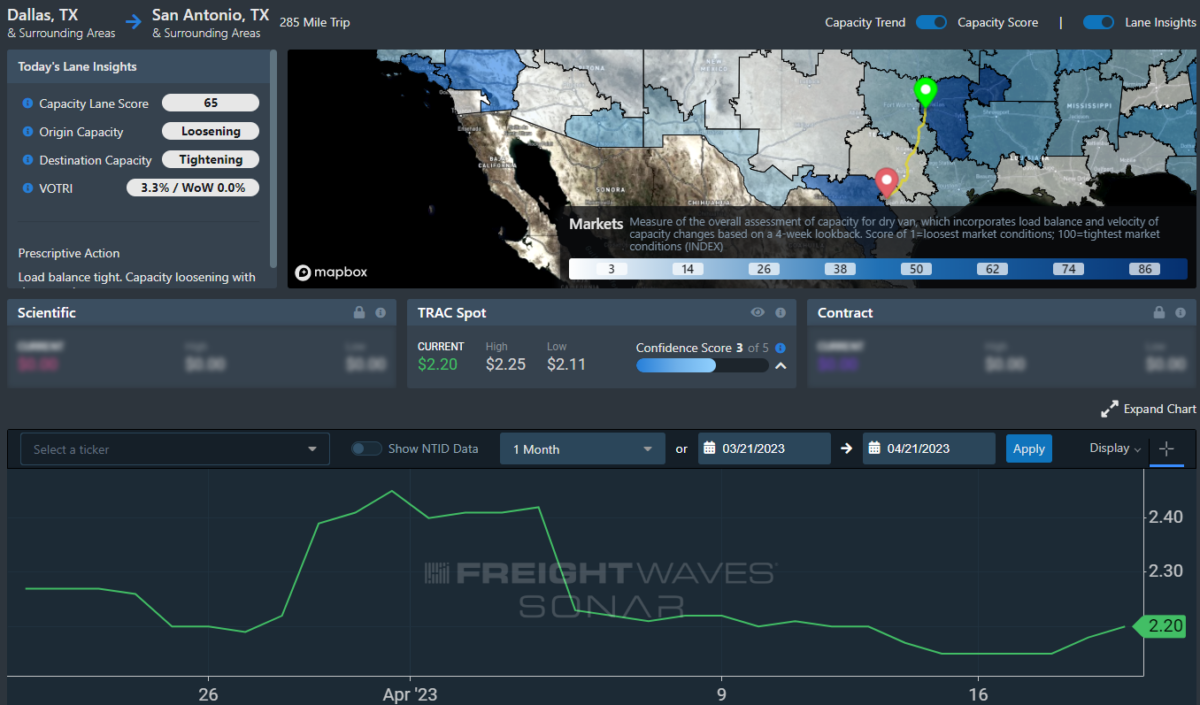Hello, and welcome to the coolest community in freight! Here you’ll find the latest information on warehouse news, tech developments and all things reefer madness-related. I’m your controller of the thermostat, Mary O’Connell. Thanks for having me!
All thawed out

KITT autonomously fought fictional criminals alongside David Hasselhoff in the ’80s. Fast forward to today’s reality and robotic trucks are delivering chicken tendies in Texas. Kodiak Robotics is partnering with C.R. England to haul freight for Tyson Foods in Texas as a pilot program for autonomous trucks. These reefer trailers will be hitting the 285 miles of pavement between Dallas and San Antonio.
“Tyson Foods is pursuing the leading edge of technology in all aspects of our business, especially in transportation,” Patrick Simmons, vice president of transportation at Tyson Foods, said in a news release. “Autonomous trucks are just one piece of the puzzle in this innovation journey to use technology to operate more efficiently and to help ensure our transportation loads are delivered in a timely fashion.”
Also making headlines is Carrier Transicold with a new electric temperature-controlled unit. Appropriately named, Syberia eCool unit has zero direct engine emissions and ultra-low-noise operation, making it the No. 1 draft pick for all-electric urban deliveries. This is more or less a plug-and-play solution to existing Carrier power boxes. It just happens to ramp up the efficiency of the reefer unit and make it less of a drain on the vehicle’s electric battery. “We set ourselves the challenge to develop an easy-to-install, all-electric solution that delivers low-energy consumption without losing efficiency,” said Scott Dargan, managing director, U.K. and Northern Europe, at Carrier Transicold, in an article in Fleet Transport.
Temperature checks

Jacksonville, Florida, is collecting cold storage facilities faster than Thanos collected Infinity Stones. The most recent addition is Arcadia Cold, a 3PL that specializes in cold storage. The new facility will add over 30,000 pallet positions and will comprise over 216,000 square feet. While Arcadia has announced five new locations over the past year, this is the first to focus on port-based handling services. The company is focusing on helping food companies take products from port to plate.
In another expansion, Lineage Logistics has celebrated the opening of a 220,000-square-foot facility near the Port of Savannah in Georgia, mostly because it already has a facility in Jacksonville. The new facility can process more than 40 trucks or roughly 1.4 million pounds of produce daily. Services offered at the new “Fresh” facility include cold retreatment and the ever-popular on-site Customs and Border Protection inspections. The facility is a direct result of the switch to East Coast ports. As more and more volumes come in on the East Coast, cold storage providers have had to build the facilities to accommodate the excess.
Food and drugs

North Carolina-based FedUp Foods has taken its sustainability model to heart. One of its house brands of fermented drinks, Buchi, has overhauled its distribution channel to be more sustainable. Buchi was primarily sold direct-to-consumer and on Amazon, which was key to its success during the pandemic, when the brand was launched. Now that consumers are out and about more, the brand has made the switch to partnering with grocery chains like Whole Foods, Wegmans and Publix. This has cut down shipping costs, emissions and packaging space, and it has helped increase development of new product lines.
These new distribution efforts on top of the company’s sourcing guidelines have made a significant impact. The company sources from co-ops of farmers and pays a premium that is invested back into the community. It has switched from aluminum cans to glass bottles and most recently has partnered with One Tree Planted. A strong look at the entire life cycle of the product led to small changes that benefit everyone involved.
Cold chain lanes

This week’s Trusted Rate Assessment Consortium lane is Dallas to San Antonio, just like the C.R. England trucks are hauling for Tyson. These loads on the spot market would be going for $2.20 per mile. It’s unknown how much the autonomous trucks are per mile but probably less than this rate. For a short run, the rates are going to be higher than some of the longer runs but still not great money makers for drivers. Shippers are lucky to keep the low spot rates, but at the same time as spot rates become less profitable for drivers, leaning on relationships that are profitable for all parties is key.
Is SONAR for you? Check it out with a demo!
Shelf life
DOL nominee announces ‘progress’ in West Coast labor talks
Saving supermarket supply chains with IIoT
UNLIMEAT takes first place in new plant-based frozen category at Albertsons stores
Supply chains: Can monitors and packaging be sustainable?
Why the fresh produce industry is ripe for AI-powered carbon reduction
OK with the change in management? Shoot me an email with comments, questions or story ideas at moconnell@freightwaves.com.
See you on the internet.
Mary
If this newsletter was forwarded to you, you must be pretty chill. Join the coolest community in freight and subscribe for more at freightwaves.com/subscribe.







